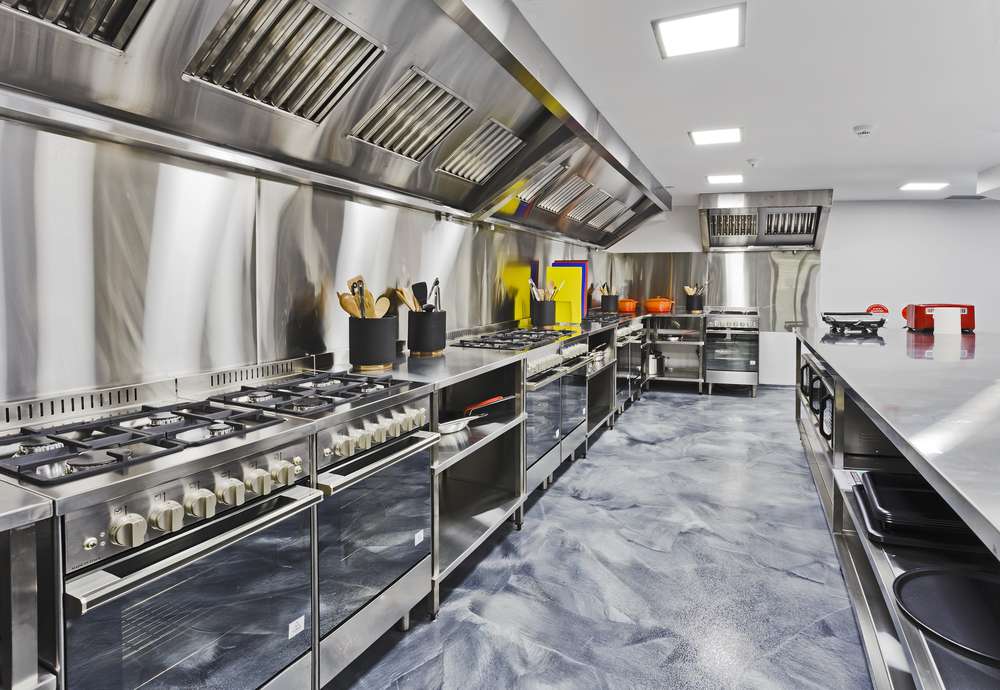How to Ace a Commercial Kitchen Health Inspection
Health inspectors play a crucial role in ensuring that commercial kitchens adhere to hygiene and safety standards. A successful kitchen inspection is a badge of honor, and in this guide, we will explore the critical aspects of acing a commercial kitchen cleaning inspection.
We’ll cover what health inspectors look for, key areas of focus during inspections, and the steps you can take to ensure a flawless review.
What Do Health Inspectors Look For?
Health inspectors are trained professionals who play an important role in ensuring the safety and hygiene of food establishments. During an inspection the health inspector must see various elements, including:
1. Food Safety
Inspectors assess food safety practices, checking for proper food storage, handling, and temperature control. They ensure that food is prepared, cooked, and stored safely to prevent foodborne illnesses.
2. Cleanliness and Sanitation
Inspectors scrutinize the cleanliness and sanitation of the kitchen. This includes assessing the cleanliness of surfaces, equipment, and food preparation areas. They check if cleaning procedures are followed and that cleaning agents are used appropriately.
3. Cross-Contamination
Cross-contamination is a significant concern. Inspectors examine processes to prevent cross-contamination between raw and cooked foods, as well as food contact surfaces.
4. Employee Hygiene
The personal hygiene of kitchen staff is a key focus. Inspectors ensure that employees follow proper handwashing procedures and wear clean and appropriate attire.
5. Pest Control
Inspectors check for signs of pests, such as rodents or insects, and assess pest control measures in place to prevent infestations.
6. Compliance with Regulations
Health inspectors evaluate whether the establishment complies with local and national health regulations and standards. They verify that food is sourced, prepared, and stored in compliance with the law.
7. Record-Keeping
Inspectors often review records related to food safety, including temperature logs, cleaning schedules, and staff training records.
8. Equipment Maintenance
They assess equipment for cleanliness, functionality, and maintenance. Any broken or unsanitary equipment may result in violations.
9. Allergen Control
Inspectors check that allergen information is correctly communicated to staff and customers, and that allergen-free options are handled separately.
Point of Focus During Health Inspections
To successfully ace a commercial kitchen cleaning inspection, focus on the following key areas:
1. Daily Cleaning and Sanitation
Routine cleaning and sanitation are the foundation of a successful kitchen inspection. Maintain a strict cleaning schedule, including cleaning and sanitizing surfaces, equipment, and utensils.
2. Pest Control
Pest control is a critical area of focus. Regularly inspect and maintain your facility to prevent pest infestations. Keep a record of any pest control measures you implement.
3. Handwashing Stations
Ensure that handwashing stations are readily accessible, stocked with soap and disposable towels, and properly used by kitchen staff.
4. Proper Food Storage
Store food at the appropriate temperatures, separate raw and cooked foods, and label items clearly with dates and contents. Regularly check refrigeration units to ensure they are within the recommended temperature range.
5. Cross-Contamination Prevention
Implement clear and rigorous processes to prevent cross-contamination. Train your staff to handle raw and cooked foods separately and maintain proper hygiene practices.
6. Allergen Control
Maintain strict protocols for handling allergens and ensure that staff is well-informed about allergen-specific procedures.
7. Equipment Maintenance
Regularly inspect, clean, and maintain kitchen equipment. Address any equipment issues promptly to prevent violations.
8. Record-Keeping
Maintain meticulous records of cleaning schedules, temperature logs, pest control measures, and staff training. This documentation demonstrates your commitment to food safety.
Steps to Ace a Commercial Kitchen Cleaning Inspection
To ensure a successful commercial kitchen cleaning inspection, follow these steps:
1. Train Your Staff
Educate your kitchen staff about food safety, hygiene practices, and the importance of cleanliness. Regular food safety training and ongoing reinforcement of these principles are essential.
2. Implement Strict Cleaning Schedules
Create and follow detailed cleaning schedules for your kitchen. Assign responsibilities to staff members to ensure that no aspect of cleaning is overlooked.
3. Regular Inspections
Conduct routine self-inspections to identify and address any issues before a health inspector arrives. This proactive approach helps maintain a clean and sanitary environment.
4. Maintain Records
Keep comprehensive records of cleaning schedules, temperature logs, pest control measures, and staff training. Organized documentation simplifies the inspection process.
5. Communicate with Your Team
Maintain open communication with your kitchen staff. Encourage them to report any issues or concerns related to food safety and hygiene.
6. Be Prepared
Before the inspector arrives, review your kitchen’s cleaning procedures and safety protocols. Ensure that all staff members understand what to expect during an inspection.
7. Cooperate with the Inspector
During the inspection, cooperate fully with the health inspector. Answer questions honestly and provide any documentation requested.
8. Correct Any Violations
If the inspector identifies any violations or concerns, address them promptly and thoroughly. Corrective actions should be implemented immediately.
9. Follow Up
After the inspection, conduct a post-inspection review to address any issues identified by the inspector. This ensures that violations are not repeated.
10. Continuous Improvement
Use the inspection as an opportunity for continuous improvement. Identify areas where you can enhance your food safety and cleaning procedures.
Pass the Los Angeles Restaurant Health Inspection
Acing a commercial kitchen cleaning inspection is an essential part of running a foodservice establishment. By focusing on food safety, cleanliness, and hygiene, and following a proactive approach to address potential issues, you can create a kitchen that not only meets health inspector expectations but also maintains a safe and sanitary environment for your customers and staff.
Contact Safe Kitchens today to get your restaurant or other commercial kitchen in top shape before your next health inspection.

